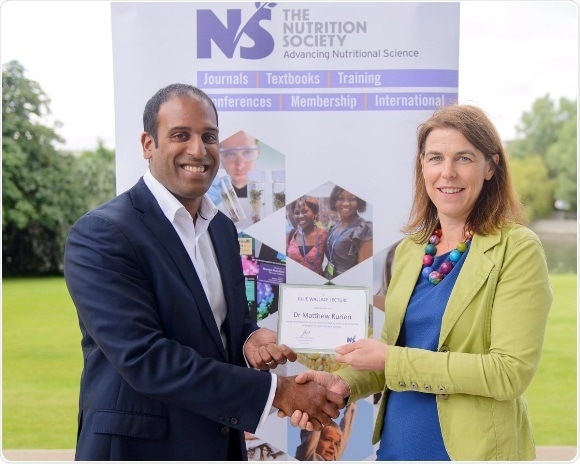Sep 24 2016
A gastroenterology specialist has won a national award for his research into feeding tubes.
Dr Matt Kurien has investigated which patients benefit most from feeding tubes, and provided evidence to help clinicians decide which cases are most suitable.

Dr Matt Kurien, left, receives his award
Dr Kurien, an Academic Clinical Lecturer in Gastroenterology at the Royal Hallamshire Hospital, has been presented with The Nutrition Society’s Julie Wallace Lecture Award for his work.
The award recognises early stage scientific excellence in the field of nutrition.
Dr Kurien said:
It is the first national level award I have won. I am delighted, and although it is an individual award it really recognises the contribution of the whole team here.
Around 17,000 people across the country have PEG feeding tubes, which allow patients to be fed with liquids directly into their stomach.
PEG tubes are used for patients who can’t eat and drink normally. For example, patients with conditions such as Parkinson’s Disease, Motor Neurone Disease and cancer who may have swallowing difficulties caused by their illness.
Dr Kurien said variations in decision making and aftercare at different centres can influence outcomes and readmission rates. The team at Sheffield have devised a scoring system to improve the selection of patients, and established a community dietitian team which has successfully reduced readmissions.
He hopes his work can now be used to guide and improve decision making more widely in the NHS.
He said:
My work was to review benefits of treatment. We looked at survival rates and quality of life to try and establish which patients benefit most from a PEG tube.
We have demonstrated that we need to carefully select patients, and we are trying to establish an evidence base to help guide that decision making.